What Are Adrenals and How Can We Support Them?
Welcome to our monthly newsletter! This edition focuses on understanding the adrenal glands and exploring natural ways to support their function.
Understanding Adrenal Function: The adrenal glands are small, but mighty, organs located on top of each kidney. They play a crucial role in producing hormones that regulate metabolism, immune response, blood pressure, and stress response. Here, we’ll explore how various factors interact with adrenal function and ways to support these vital glands.

Thyroid Connection
- The adrenal glands collaborate closely with the thyroid to maintain energy levels and metabolic balance. Ensuring optimal thyroid function can greatly benefit adrenal health. The hypothalamic-pituitary-adrenal (HPA) axis and the hypothalamic-pituitary-thyroid (HPT) axis are closely interrelated.
- Chronic stress can result in elevated cortisol levels from the adrenal glands, which can suppress the HPT axis and reduce thyroid hormone production. High cortisol levels can decrease the conversion of thyroxine (T4) to triiodothyronine (T3), the active thyroid hormone.
- Cortisol imbalance can also lead to increased reverse T3 (rT3), which inhibits T3 activity.

Adrenal Support Supplements and IV Therapy
Certain supplements and IV therapies can provide targeted support for adrenal function.
Here are a few powerhouses that can be beneficial to adrenal health.
At LOHC, we offer:
- Phosphatidylcholine (PC) IV (PK “Patricia Kane”protocol)
- Ozone IV treatments
- Vitamin C IV treatments
- Magnesium IV treatments
- B vitamins
- Adaptogenic herbs like Ashwagandha and Rhodiola
Antioxidants/Vit C:
When our adrenal glands are not functioning properly, there is an increased prevalence of oxidative damage as a result of reactive oxygenated species being produced. This oxidative damage can then damage our bodies’ inherent physiological functioning. Incorporating powerful antioxidants (such as vitamin C) into our healthcare routine can help decrease some of the negative effects we experience as we work towards addressing the root cause of adrenal insufficiency.
Magnesium:
Optimal adrenal functioning can be inhibited by unmanaged stress. An important part of our stress response comes from the HPA axis. Studies have shown that magnesium deficiency can lead to HPA axis dysregulation and increased anxiety. Furthermore, magnesium can help reduce high levels of our stress hormone (cortisol, which can be taxing to our adrenal glands at high levels. Supplementing with magnesium can be beneficial in assuring the health of our adrenals.

The Role of Sleep
Quality sleep is essential for adrenal health. Melatonin, a hormone produced in the pineal gland, helps regulate sleep-wake cycles. To enhance melatonin production:
Consistent Sleep Schedule:
Go to bed and wake up at the same time every day, even on weekends. This helps regulate your body’s internal clock.
Create a Bedtime Ritual:
Develop a pre-sleep routine to unwind. This could include reading, taking a warm bath, or practicing relaxation exercises like deep breathing or meditation.
Limit Naps:
If you must nap, keep it short (20-30 minutes) and avoid napping late in the afternoon or evening.
Optimal Sleep Environment:
Keep your bedroom cool, dark, and quiet. Use blackout curtains, earplugs, or a white noise machine if needed.
Minimize Distractions:
Keep the bedroom for sleep and intimacy only. Remove work-related items, electronic devices, and clutter.
Limit Exposure to Screens:
Avoid screens at least an hour before bed. The blue light emitted by screens can interfere with your body’s production of melatonin, the sleep hormone.
Managing Stress
Chronic stress can lead to adrenal fatigue. Consider trying:
| Practicing mindfulness and meditation |
| Engaging in regular physical activity |
| Prioritizing relaxation and leisure activities |

Nutrition
Eating a diet that is primarily whole foods based and filled with micronutrients is the key to adrenal health. On a general basis, try incorporating these foods into your diet:
- Whole grains
- Lean proteins
- Fresh fruits and vegetables
- Healthy fats (such as avocados, nuts, and seeds)
- Stay hydrated with plenty of water.
Experience the Transformation
Join us at Lake Oswego Health Center as we strive to improve your health. Whether you’re seeking relief from fatigue, protection against infections, or a boost to your overall well-being, we’re here to support you every step of the way.


